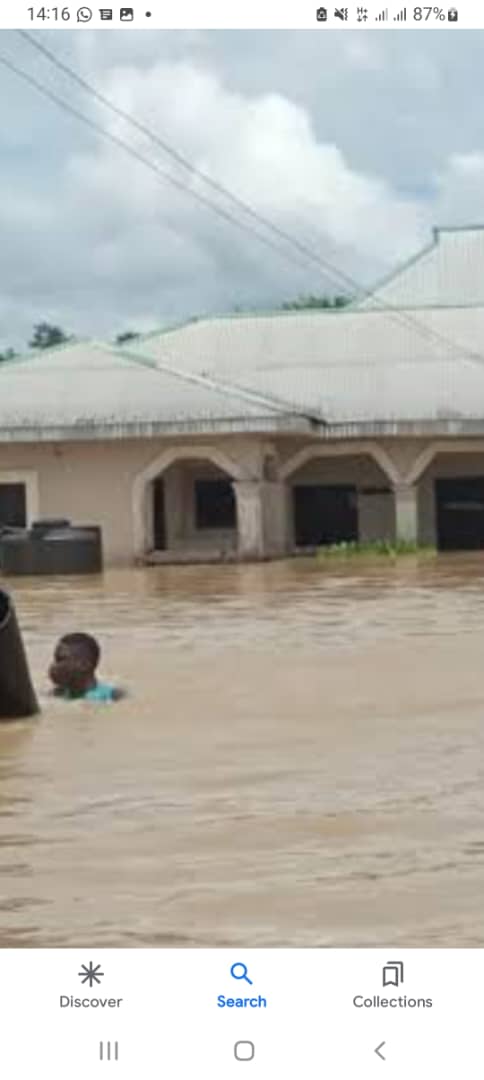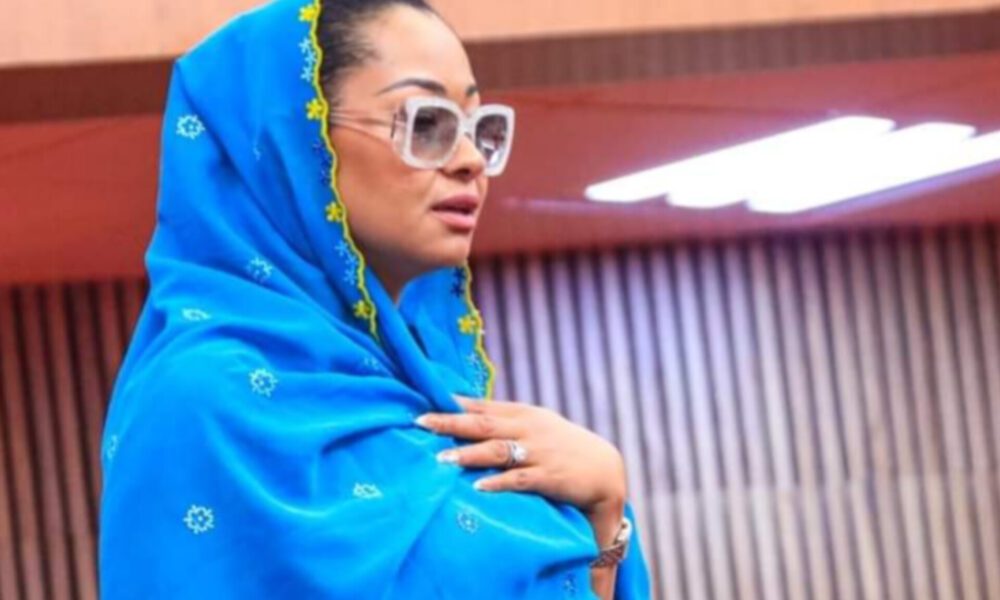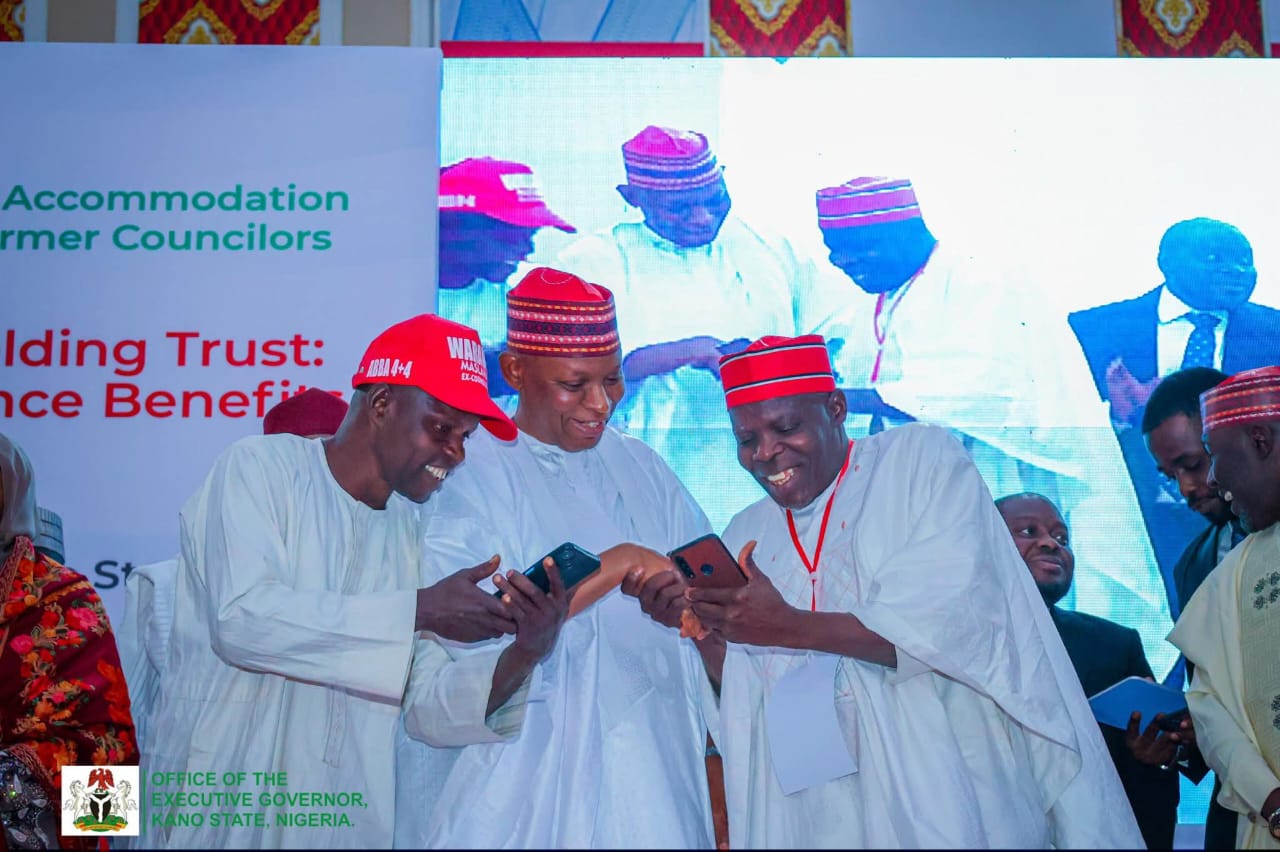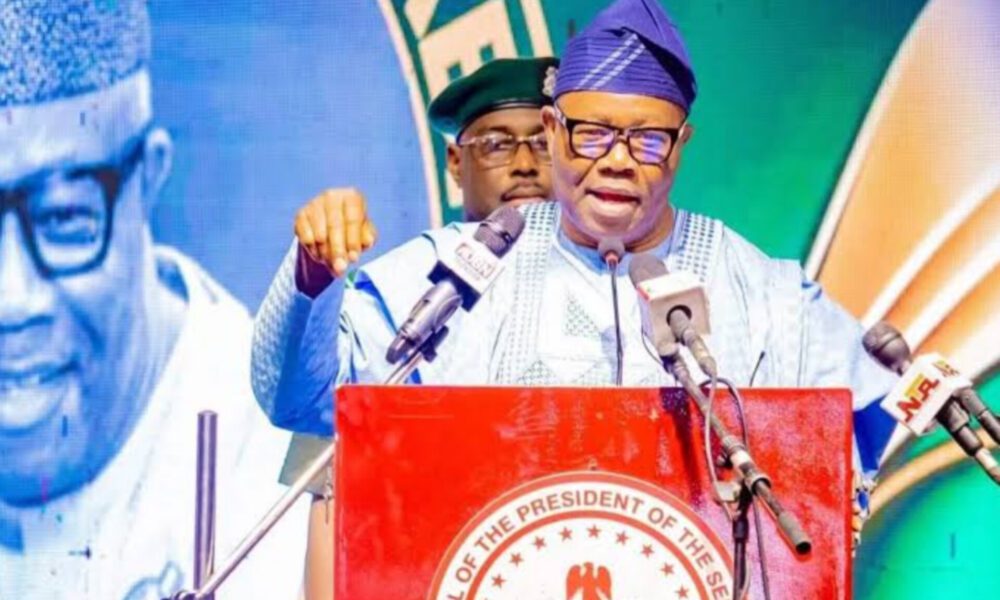By Tunde Olusunle
Your eyes are instantly arrested by the unusual volume of the Benue River as you drive into Makurdi from the Daudu/Agan abutments of the capital of Benue State, this quiet afternoon. You glide past the approach bridge, and glimpse to your left, the “Makurdi Golf Course,” hitherto seated by the scenic lips of the river. It is soaked, sadly now, swamped and submerged by the overabundance of liquid blessings.

Ahead of you is the attention-commanding artwork of a huge basket bearing a variety of farm produce, an attestation to the pride of place of Benue State as the epicentre of food production in the country. The image sits strategically at the intersection which leads to the nation’s South East and South South stretches. The scourge of the floods, you come to understand, is the reason that your host, Samuel Ioraer Ortom, governor of the state, could barely savour the nation’s 62nd Independence Anniversary, two days later.


He began his day that Saturday Oct 1, 2022, by attending the interdenominational church service commemorating the national landmark. The event was held at the All Nations Evangelism Ministries in Makurdi, the state capital and Ortom had taken the first Bible reading. He was also invited to make some remarks, before the closing prayers and benediction. Those who expected him to return to Government House, Makurdi to fete guests in the spirit of the occasion, however, were disappointed. He virtually commandeered officials of the Benue State Emergency Management Agency, (BESEMA), to take him on a tour of sections of the state capital which were affected by the water overflow. The development had precipitated the dislodgement of his people in parts and the destruction of their farmlands and by extension their livelihoods.
Ortom was dressed in white and green blazers and trousers, in the spirit of the independence. The kind of impromptu tour he had just elected to undertake would have been better suited to jeans trousers and rain boots. The imperative for him to appraise the situation himself as the pragmatist that he is, however, had no time for sartorial correctness. Ortom toured Wadata Market, Rice Mill, Awe Street (Wurukum), the designated park and headquarters of Benue Links transport company, all the way to Kucha Utebe. He inspected the environs of Benue State University Teaching Hospital, all in the state capital. Makurdi was effectively under water. Besides Makurdi local government area, Guma, Gwer West, Katsina-Ala and Agatu, are other provinces held by the throat, by flooding.
Ortom was accompanied by officials of his administration and federal parliamentarians. Bem Mzondo and John Dyegh, representing Makurdi/Guma, and Gboko Tarka federal constituencies; Ortom’s Chief of Staff, Tivlumun Nyitse and the Director of the Benue State Emergency Management Agency, (BESEMA), Emmanuel Shior, were on the governor’s delegation. Felix Atume, a Fellow of the Nigerian Academy of Engineering, (FA Eng), was also on the tour. They were briefed that River Benue, Nigeria’s second largest water body, was one of those negatively impacted by the release of excess water from Lagdo Dam in neighbouring Cameroun. The Lagdo burst also afflicted River Katsina-Ala, the second largest in Benue State, precipitating developments similar to the Makurdi experience.
An estimated 126,000 people from 24,000 households have been unsettled by the floods. The state government has temporarily relocated them into a camp for Internally Displaced Persons, (IDPs) in Makurdi. This expectedly, compounds the IDP situation in the state, hitherto precipitated by Fulani herdsmen’s untoward activities in the state, with makeshift structures housing them, dotted around the state. Ortom estimates his constituents numbering over a million, as having been long uprooted from their homelands. In addition to this reality, no less than 5000 hectares of cultivated rice and other crops have been destroyed by the recent water burst. The macroeconomics of this will impact on food sufficiency and security, in the coming weeks and months. Benue State is also renowned for massive cultivation of yams, sorghum, sesame seeds, groundnuts, oranges and mangoes, among others.
Governor Ortom alluded to the earlier pledge of the federal government to dredge River Benue, a promise which remains unkept till date. Former Transportation Minister under President Muhammadu Buhari regime, Chibuike Rotimi Amaechi while defending his ministry’s budget before the national parliament in 2017, said matter-of-factly that the river will be dredged. Vice President Yemi Osinbajo on a visit to Benue State later in 2017, re-echoed Amaechi, adding that drainage channels will be created for effective mitigation of water fluxes. A contract worth N34 Billion was thereafter reportedly awarded for the dredging, which has remained unexecuted five years on.
Whether this was stalled by superior professional guidance about the challenges of levelling the preponderance of rock outcrops in the bed of the river, or by feasibility studies on the economic viability of the exercise, has not been established. Ortom believes, however, that the apathy towards the project is consistent with the laissez faire disposition to everything about Benue State in the eyes of the federal government. He challenged the legislators representing the state in the national assembly to dig into the issue to ascertain the actual status of the said contract which has remained a ding-dong affair for five long years. He observed that a similar disaster occurred in 2012, exactly 10 years ago, and faulted the government’s capacity in disaster anticipation and planning for its amelioration.
Offering his perspectives as an expert in engineering, Atume noted that the ferocity of the floods were heightened by blocked channels which ordinarily are the natural pathways for water. He observed that in certain instances, flood plains had been abused and converted to residential estates. In many such instances, water he noted was an eventual nemesis, which came back to haunt its abusers. Atume alluded to the massive silting and sedimentation of the river bed, and the irresponsible practice of pollution by way of indiscriminate dumping of non-biodegradable material, especially plastics.
Also a Fellow of the Nigerian Society of Engineers, (FNSE), Atume noted: “Water moves with intense force and serious velocity. It is very heavy, very powerful. It must be allowed to flow or it will create its own outlets.” According to him, government must muster the political will to do the right thing in addressing the situation, because it will have to take tough decisions in some cases. “Government has to address itself to outright demolition of structures where natural courses have been obstructed,” he said. “Channels will then have to be designed taking into consideration existing geophysical peculiarities, to allow water free movement.” Atume also expressed concern about a critical mass of the Lekki span of Lagos State. He’s worried that much of the primordial water body was momentarily suppressed in the name of reclamation, for purposes of physical development. Water, he noted, will someday, always find its level.
The Benue State governor called on emergency and relief ministries, departments and agencies, (MDAs), to come to the immediate aid of the state in assuaging the plight of his people, as he addressed the media at Kucha Utebe: “Having physically gone round the various locations affected by the most recent floods, it is clear to me that we need help from everywhere. From the Ministry of Emergency and Disaster Management; the National Emergency Management Agency, (NEMA) and other such bodies, we need all the help we can get at this trying period. Support from donor agencies will be much appreciated as well.” According to Ortom, the present experience cannot be solely managed by the state government, in a milieu where dwindling resources are impacting the seamless functioning of the state.
A delegation of the Nigeria Governors’ Forum, (NGF) on Friday October 7, met with Buhari in the State House, Abuja. Led by the outgoing chairman of the body, Kayode Fayemi of Ekiti State, they drew the attention of President Muhammadu Buhari to the flood challenge across the country and requested the prompt and decisive intervention of the federal government. Buhari advised the forum to engage with the Water Resources Minister, Suleiman Hussein Adamu, articulate an action plan and revert accordingly, so that the federal government “will see what can be done.” How this suggestion will ameliorate the urgent, present, pressing predicament of the people of Benue State, given the snail pace of bureaucracy in our governance superstructure, is yet to be seen.
Tunde Olusunle, PhD, poet, journalist, scholar and author, is a Member of the Nigerian Guild of Editors, (NGE).




